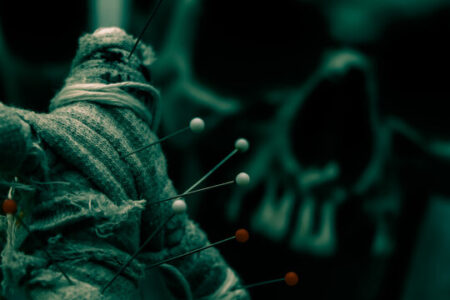Bombay High Court on Friday directed the District Collector to award a compensation of ₹10 lakh each to widows of three deceased manual scavengers who had lost their lives while cleaning a septic tank in Mumbai.
The Court also held the Maharashtra government liable to identify and stop the “shameful practise” of manual scavenging.
A division bench of Justices Ujjal Bhuyan and Madhav Jamdar issued an interim order that Rs. 10 lakhs be paid to the widows within four weeks and grant Rehabilitation measures.
The Court was hearing a petition filed by advocate Isha Singh on behalf of the widows.
The three women – Vimla Govind Chorotiya, Neeta Santosh Kalshekar and Bani Vishwajit Debnath – had approached the Court after their husbands lost their lives while carrying out the task of manual scavenging in a private housing society in Govandi on December 23, 2019.
Their plea was following Supreme Court judgement in Safai Karamchari Andolan v. Union of India in 2014 and clarification later issued in 2016, which states that Government must provide Rs. 10 lakhs to the family of every person who has lost their life in sewerage work, irrespective of whether they were in public or private employment.
The plea also emphasised that the Maha govt did not comply with the provisions of the Prohibition of Employment as Manual Scavengers and their Rehabilitation Act 2013 (PEMSRA), which prohibits the practice of manual scavenging without the use of specific equipment.
“Due to gross violation of the law on the Maharashtra government’s part, the petitioners lost their primary breadwinners and were rendered without a livelihood, jeopardising the family’s future”, the petition highlighted.
Appearing for the State, Poornima Kantharia had earlier cited a government resolution. The State only has to oversee compensation by the private party and not dispense with the settlement itself.
However, Advocate Isha Singh for the petitioners held the State strictly responsible for providing compensation to the families under Article 17 of the Constitution (abolition of untouchability) even though the deaths had taken place in a private housing society.
On Friday, Mrs Kantharia submitted that the Government was further willing to rehabilitate the petitioners under Section 13 of the PEMSR Act, 2013 by providing their children scholarships, in addition to the said compensation.
She also informed the Court that the company that hired the victims had deposited cheques of ₹1.25 lakh for each petitioner after the incident.
The Court directed that the cheques be handed over to the widows and said that the Collector must hand over the remaining amount within the specified time.
Justice Madhav Jamdar of the bench also enquired the state government about the survey to identify manual scavengers across the State after enacting the PEMSRA and what steps it had taken to rehabilitate them.
The Court also asked for details on the workers who had died since 1993 (after manual scavenging had been abolished).
“Manual scavenging is a humiliating and shameful method of employing people from the lower strata of the society to carry out the hazardous job of cleaning septic tanks”, the Court remarked.
The Court held the state government responsible for ensuring an end to this practice and said, “Despite such strict legislative intent, this shameful practice continues, this should shock the collective conscience of the society.”
The Court has directed the state government to submit all the information for the next hearing on October 18.
In February, The Ministry of Social Justice and Empowerment had pegged the total number of deaths due to manual scavenging at 340, with 34 in Maharashtra. The data was for five years till December 31, 2020.
The Maha government must follow up on HC’s ruling and take adequate measures in ensuring an end to these unfortunate occurrences.
There is also a severe need for discussions on state authorities’ inability to distribute compensation to the victims’ families properly.












